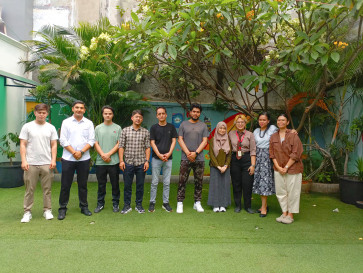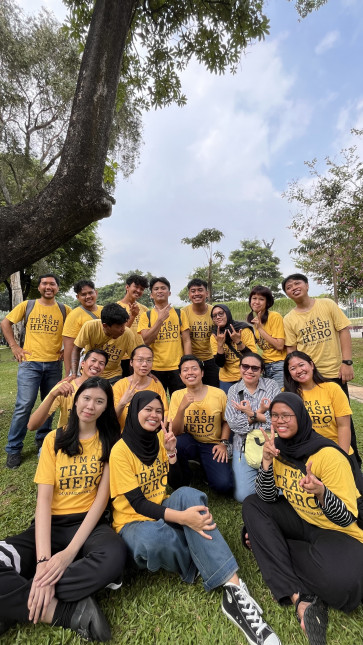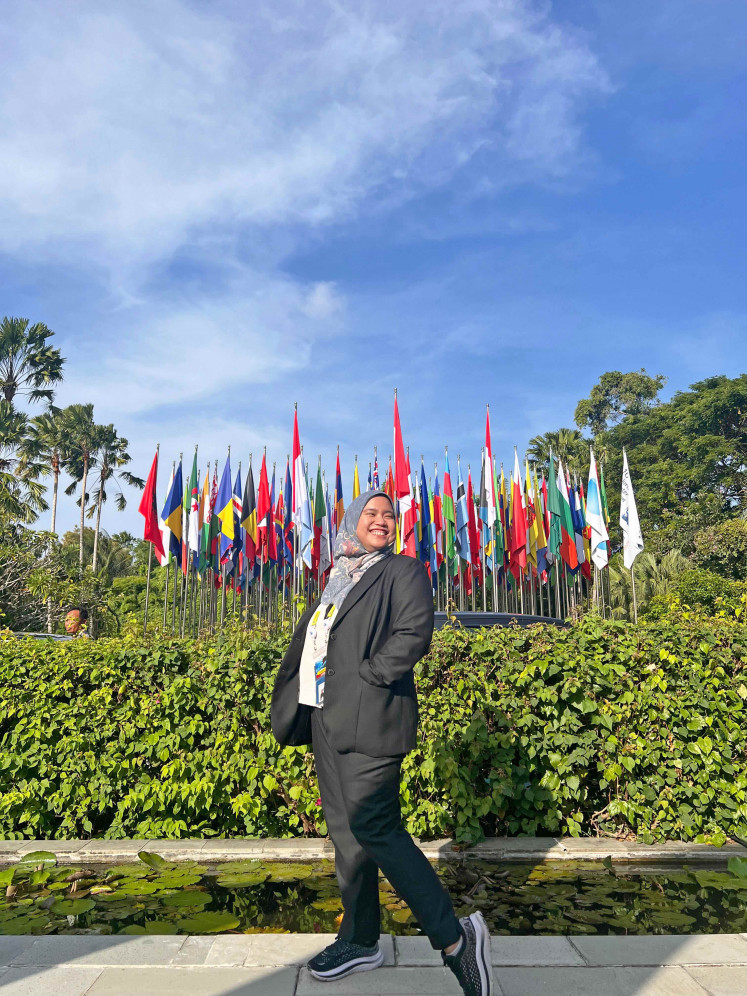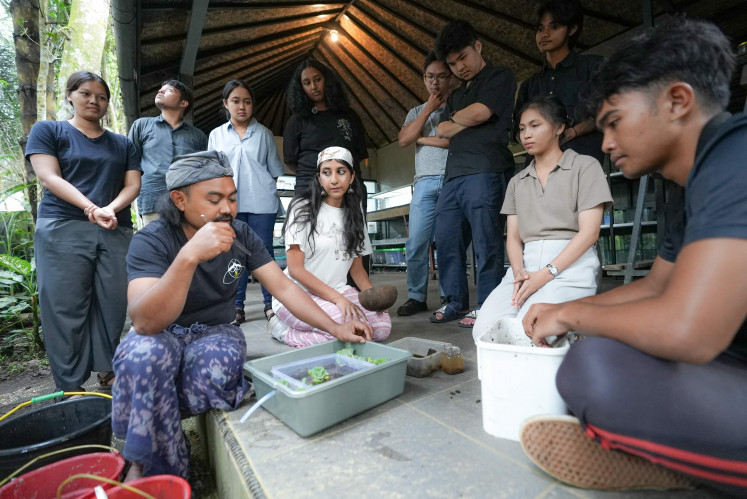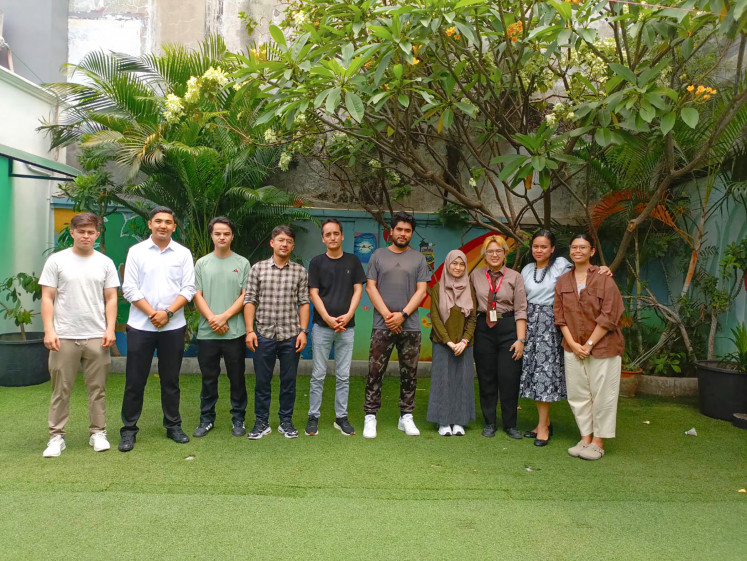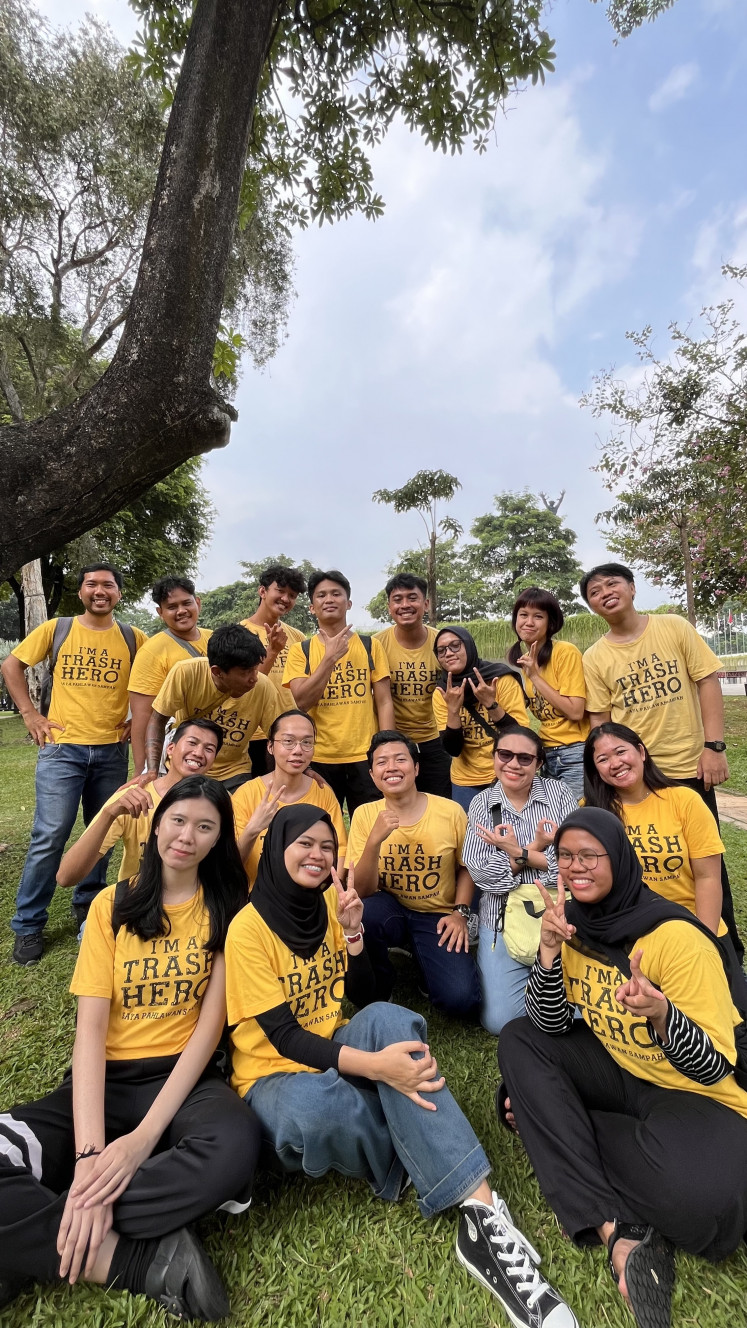It seems like everyone is trying to leave.
On social media, over office lunches, in group chats filled with job openings in Singapore and guides to Australia’s working holiday visa, the idea of starting over somewhere else feels more urgent than ever.
#Kaburajadulu (run away first) is not just a hashtag. It is an anxiety-fueled impulse that's taken hold of the young and restless, especially in Jakarta.
It is not hard to see why.
Aprilio, 34, wants out for good, especially after getting a taste of life in the United Kingdom during his master’s program. Living in Manchester made him realize how liberating it is to be in a place where no one fixates on your appearance, sexuality, or life choices.
“Comparisons are easily done once you’ve had a taste of perfection,” he laughs, quoting Katy Perry’s “Thinking of You”.

Thank you!
For signing up to our newsletter.
Please check your email for your newsletter subscription.
He is eyeing scholarships that do not require him to return. But for now, his contract until 2026 keeps him here. The penalty for leaving early is too steep.
“That’s the only thing keeping me here. I do not even think about my family—I just want to leave,” Aprilio says.
What if things get better here?
“To be honest, I have stopped hoping. Things keep getting worse. We are not a ‘developing’ country anymore, we are regressing.”
Even the younger ones, the so-called future of the nation, are eyeing the exit.
Nana, 24, a graphic designer, and Rey, 22, a final-year student, both see now as the best time to leave: still in their early careers, unanchored.
“The working conditions here are a mess. No work-life balance at all,” Nana says.
“But I need to improve my language skills and save money.”
Rey, pictured during his 2024 exchange program in Russia, still hopes to leave for peace of mind. (Courtesy of Reyfanza)
Rey, who just returned from an exchange program in Russia, wants to leave for both career and peace of mind.
“You have to be someone’s someone here to get a good job.”
Like Aprilio, Rey is tired of Indonesian society.
“It’s too loud. Maybe it’s my Sumatran roots, but people meddle too much here. I want to live somewhere people mind their own business.”
Those who choose to stay
But while #Kaburajadulu dominates timelines, most people are still here. Some don’t have the option. Others, surprisingly, choose to stay.
Is it optimism? Obligation? Or just a comfort you can’t pack?
I sat down and realized, hey, that’s me too. I chose to stay. But only after trying to leave.
I left briefly for studies: Singapore, France, the UK. Short, but enough to taste the alternative. I tried to apply for a PhD in Europe for years, but never followed through. Maybe it was the comfort of home, my aging parent or the cost of relocating my cats. Maybe all of it.
Even when I was unemployed, despite better job markets abroad, I chose Jakarta. Why? One, I no longer have the energy to pack my life into suitcases. Two, you’d need to be really rich to afford Jakarta’s version of middle-class comfort in Singapore.
So, laziness? Maybe. But I think there’s more.
When I asked around, the most common answer was, “It’s actually not that bad here.” The grass isn’t always greener.
Take Puspa, 33, a civil servant raised across multiple cities. She never dreamed of moving abroad and values the kind of slow living Indonesia offers.
“What I have and what I’ve achieved here are enough,” she says.
Even though government austerity has cut her income, for now, she’s fine.
“When I’m older, I just want a quiet life in rural Indonesia. That’s enough for me.”
Still, she respects those who leave.
“I admire their bravery. It takes courage and resources. I don’t have either.”
Puspa, a civil servant seen here at the Group of 20 Summit in Bali, values the kind of slow living Indonesia offers. (Courtesy of Puspa)
That love of slow living also keeps Sherry, 31, rooted in Jakarta, despite frequent work trips to Singapore.
“Here, even the lower middle class can live relatively comfortably. It’s not lavish, but Rp 15,000 [93 US cents] gets you good warteg food. The hustle is different. You can’t live slowly in Singapore unless you’re loaded.”
She adds, “Jakarta’s convenience is unbeatable. We have ojek, prayer rooms, bidets, things even Singapore doesn’t always offer.”
She’s not blind to Indonesia’s flaws and worsening conditions. She gets why people want to leave.
“The grass always seems greener. But every country has problems, we just don’t see them up close,” she says.
“We think Indonesians abroad are automatically successful. But they struggle too. Sometimes we’re still mentally colonized, assuming anything ‘out there’ must be better.”
Culture and values
For some, culture and values outweigh everything else.
That’s why Fitri, 34, stays, even after studying in Japan and France.
“What we need, we have,” says the mother of two.
She works in the family business, which her father built so his kids could stay rooted. But Fitri’s reasons go beyond finance.
“Socially, we’re comfortable here. Our values align with Indonesia’s moderate culture. We can be Muslim and still embrace liberal ideas. We don’t have to pick a side like in the United States.”
That same familiar comfort is why Seda, 35, an entrepreneur building a sports studio, also chooses to stay, even after living abroad.
“Even during trips, I miss Indonesia,” she says.
“My family’s here. The culture, the chaos. It’s what I know. I’ve found my rhythm.”
Both women acknowledge the country’s problems.
Fitri notes the green passport’s limits. “If something bad happens, like in ’98, we can’t flee. Our passport doesn’t give us that option.”
Seda adds that living here takes a toll, from news cycles to pollution. But still, she stays.
“At the end of the day, this is home.”
Beyond privilege
The three women, and myself, share something: privilege. For us, the discomforts of staying haven’t outweighed the benefits.
“I know I’m speaking from privilege,” Sherry says.
“Even if I stop working, I can still live. So I understand #Kaburajadulu. Others have it way worse. Leaving makes sense.”
“The grass always seems greener. But every country has problems, we just don’t see them up close." - Sherry
But privilege aside, what about hope?
“I still believe in what we’re building,” says Fitri.
“I hope our kids inherit something better. Maybe not from this government, but the next. One can hope.”
She still feels a little nationalism. “I get excited seeing my son sing the national anthem.”
Seda agrees. “Like all problems in life, running away won't change anything. You solve them, you don’t escape.”
“We can blame the government, but we can also do something. Small things matter. Start with family and those nearby. Always try to help instead of trying to run.”
Some stay because they can’t leave. Others stay because they believe it’s worth it.
Either way, staying in Indonesia means learning to live with contradiction, frustration and comfort, despair and hope.
And that choice, in all its messiness, deserves to be seen.
Adelia Anjani Putri, a communications consultant and former reporter, has found herself writing again. She’s also exploring a career shift that would let her pursue her passions for cooking and catsitting—ideally with a paycheck.






